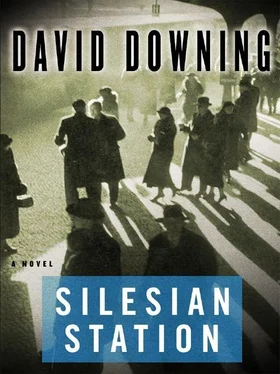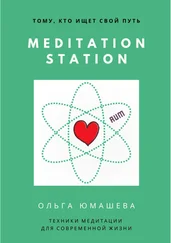David Downing - Silesian Station
Здесь есть возможность читать онлайн «David Downing - Silesian Station» весь текст электронной книги совершенно бесплатно (целиком полную версию без сокращений). В некоторых случаях можно слушать аудио, скачать через торрент в формате fb2 и присутствует краткое содержание. Жанр: Шпионский детектив, на английском языке. Описание произведения, (предисловие) а так же отзывы посетителей доступны на портале библиотеки ЛибКат.
- Название:Silesian Station
- Автор:
- Жанр:
- Год:неизвестен
- ISBN:нет данных
- Рейтинг книги:5 / 5. Голосов: 1
-
Избранное:Добавить в избранное
- Отзывы:
-
Ваша оценка:
- 100
- 1
- 2
- 3
- 4
- 5
Silesian Station: краткое содержание, описание и аннотация
Предлагаем к чтению аннотацию, описание, краткое содержание или предисловие (зависит от того, что написал сам автор книги «Silesian Station»). Если вы не нашли необходимую информацию о книге — напишите в комментариях, мы постараемся отыскать её.
Silesian Station — читать онлайн бесплатно полную книгу (весь текст) целиком
Ниже представлен текст книги, разбитый по страницам. Система сохранения места последней прочитанной страницы, позволяет с удобством читать онлайн бесплатно книгу «Silesian Station», без необходимости каждый раз заново искать на чём Вы остановились. Поставьте закладку, и сможете в любой момент перейти на страницу, на которой закончили чтение.
Интервал:
Закладка:
The storm had passed, leaving a slightly fresher feel. Russell stood by the open window, wondering about next morning's rendezvous with the NKVD. Everything seemed relatively straightforward – he had nothing to hide, or at least not very much. They would ask him about Sarah Grostein and Josef Mohlmann, and he would tell them all he knew. They would hand him their fake responses to the SD's fake questions, along with any additional briefing they considered necessary. If they wanted him to do anything else – shoot Goebbels, perhaps – he would politely decline. What could they do? As far he could judge the NKVD needed him as much, if not more, than he needed them.
Everything would be fine.
He needed to check in with the press liaison people, and find out when and where the briefings were being held. A fellow hack would know, and a fellow hack was more than likely to be propping up the bar. He headed downstairs.
A solitary English journalist was drinking tea in the bar. He looked about sixteen, and claimed to be a freelance, but the upper-crust accent made Russell suspect, perhaps unfairly, that the young man was spending pater's money on a Thirties version of the Grand Tour. He had the information Russell required, and passed it on with a sneer, as if keen to show how little official briefings mattered to a real journalist.
Outside the sky had cleared, and a fiery dusk hung over the eastern end of Marx Prospekt. Russell walked up the slope into Red Square, remembering the excitement of doing so fifteen years before. The square looked much the same, the huge expanse of cobbles, the sombre majesty of the surrounding walls and buildings. Some public spaces, like Times Square or Piccadilly Circus, evoked a frantic joy in modern life; others, like Pariser Platz or Trafalgar Square, seemed merely pompous. None evoked raw power like this place did. Whether draped in snow or bathed in a sultry evening haze, Red Square almost hummed with power, as if the stones were straining to hold it in.
He had felt this in 1924, and been reassured – all this power at the service of the revolution! But now it felt different, both empty and sinister, and the illuminated red stars above the Kremlin walls seemed like baubles, worn only to flatter and deceive.
Later in that same visit, he and Ilse had walked around the square after making ever-so-silent love in the crowded dormitory. It had been two in the morning, but a politburo meeting must have been imminent, because cars carrying Trotsky and Zinoviev swept across the cobbles and in through the Kremlin's Spassky Gate as they watched, and a few minutes later Nikolai Bukharin had hurried across the square on foot, looking, as ever, like an absent-minded young professor. Stalin had presumably already been inside, trying on the dead Lenin's shoes for size. He was probably in there now, finalising his price for letting Hitler off the leash. Slaney had been right. The British, the French, the Poles…they had given Stalin no choice. And boy, would they pay for their mistake. They and everyone else. Saturday proved interesting. Emerging from the Metropole a few minutes early, Russell found his driver sitting in his shirtsleeves on the gangster car's running board, thoughtfully smoking a cigarette. The sun was already high in the sky, the heat shimmering off the pavements.
Russell was expecting a first visit to the NKVD's Lyubyanka headquarters on Dzerzhinsky Street, and was somewhat cheered when the driver headed off in the opposite direction. Five minutes later he pulled up outside an innocent-looking office building on a road Russell didn't recognize. They climbed the stairs to the third floor, where two men in different uniforms were waiting in the large and surprisingly modern Room 303. Both were younger than Russell, but not by much. Both had short fair hair and typical Slavic faces, hawkish eyes over high cheekbones and small mouths. They introduced themselves as Comrades Moskalenko and Nazarov, the first representing the Party, the latter the Army.
So both the NKVD and the GRU wanted a piece of him. It was nice to be wanted.
Dual questioners apart, the meeting went much as he'd expected. Moska-lenko handed him a list of the questions they wanted the SD's fake informer to answer. They were in German, but encoded. A book code, he explained, passing over the book. Russell faked a suitable look of bemusement, and had the principle explained to him. The Soviet choice was an old German translation of War and Peace, which had the advantage of not being banned in Germany, but would add considerably to the weight of Russell's suitcase.
The GRU man took up the baton, asking Russell a series of questions about Mohlmann, almost none of which he could answer. Asked again how he'd met the man, he made up a chance encounter in a beer garden. Nazarov seemed less interested in Sarah Grostein, and Russell could understand why. She might provide access to higher decision-makers, but there was something shockingly urgent about trains heading your way full of troops and military vehicles.
And that was it. No new tasks were announced, promised or threatened. He would function as the cut-out between Sarah – now to be known as 'the violinist' – and Shchepkin; he would continue to transmit false information between the knowing Soviets and the unknowing Germans. There were only two bombs strapped around his life.
One last question, he said. If their government signed a non-aggression pact with the Nazis, how would that affect him?
Not at all, they said. No pact had been announced; and even if one should be, the Party had no illusions as to its permanence. Was Russell suggesting that they would betray comrades to the Nazis?
Of course not, Russell answered, recalling the list of German comrades – real or imaginary – which Borskaya had planted on him. It had taken more than one individual's 'keenness' to produce that. Still, he couldn't see any point in them betraying him again. He left the building feeling less than satisfied, but relieved that it hadn't been worse.
His driver took him on to the late morning press briefing, which proved an utter waste of time, but gave him the opportunity of joining his fellow journalists for lunch. The general opinion was that the trade agreement would be signed that afternoon, and the non-aggression pact in a week or so.
At the American Embassy he was given ten minutes with the press attache, who cheerfully told him that the Soviets had been warned – make a deal with the devil and he'll stab you in the back. At the devil's embassy they had nothing to say, but the smiles and smirks suggested bad news for Poland. He went back to the hotel, thought about decoding the NKVD's questions for the fake agent in Berlin, and decided he wasn't that curious.
He wrote a brief, doom-laden piece on the upcoming deal, and spent the next two hours traversing the bureaucratic hoops required to wire it. Another lonely dinner, another stroll in Red Square, and he returned to find a woman in his bed.
A naked one, as became apparent when she pulled back the sheet.
A present from the chaps in Room 303, he thought. And beautiful too.
He stood there stupidly for what was probably only a couple of seconds, caught between bodily desire and every other conscious impulse, of which loyalty to Effi and suspicion of spooks bearing gifts loomed largest.
She smiled at him and moved slightly, causing the bedsprings to squeak.
'No,' he said, turning his eyes in search of her clothes, and finding them neatly folded on the chair. He picked them up and passed them to her. 'Thank you, but no.'
Her smile turned into a shrug.
Two minutes later she was gone. Russell gazed out at the empty square, reliving the movement of her body in his mind's eye. 'You would have hated yourself in the morning,' he muttered to himself. Sunday morning's press briefing was as short as the name implied. The Soviet spokesman announced the signing of an economic treaty with Germany on the previous evening, but refused to divulge any details or take questions on whether the economic agreement was the forerunner of a political pact. The assembled foreign press corps grumbled its way back out to the heat.
Читать дальшеИнтервал:
Закладка:
Похожие книги на «Silesian Station»
Представляем Вашему вниманию похожие книги на «Silesian Station» списком для выбора. Мы отобрали схожую по названию и смыслу литературу в надежде предоставить читателям больше вариантов отыскать новые, интересные, ещё непрочитанные произведения.
Обсуждение, отзывы о книге «Silesian Station» и просто собственные мнения читателей. Оставьте ваши комментарии, напишите, что Вы думаете о произведении, его смысле или главных героях. Укажите что конкретно понравилось, а что нет, и почему Вы так считаете.












